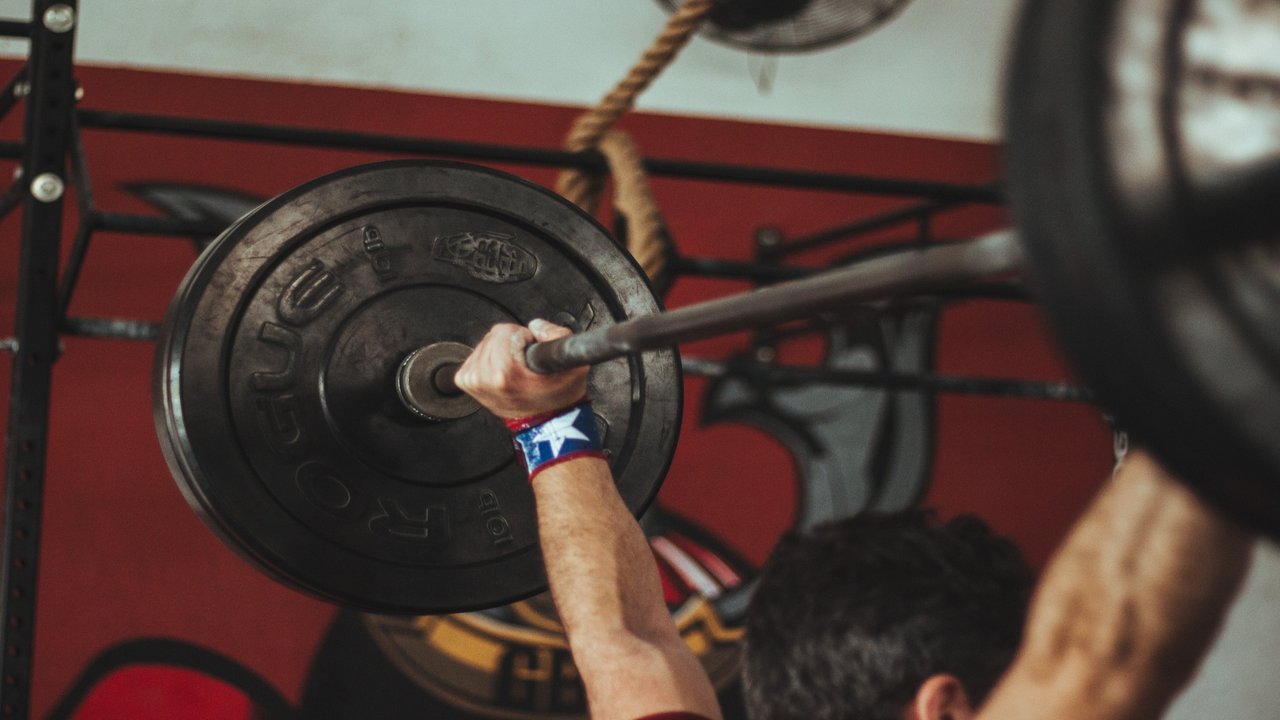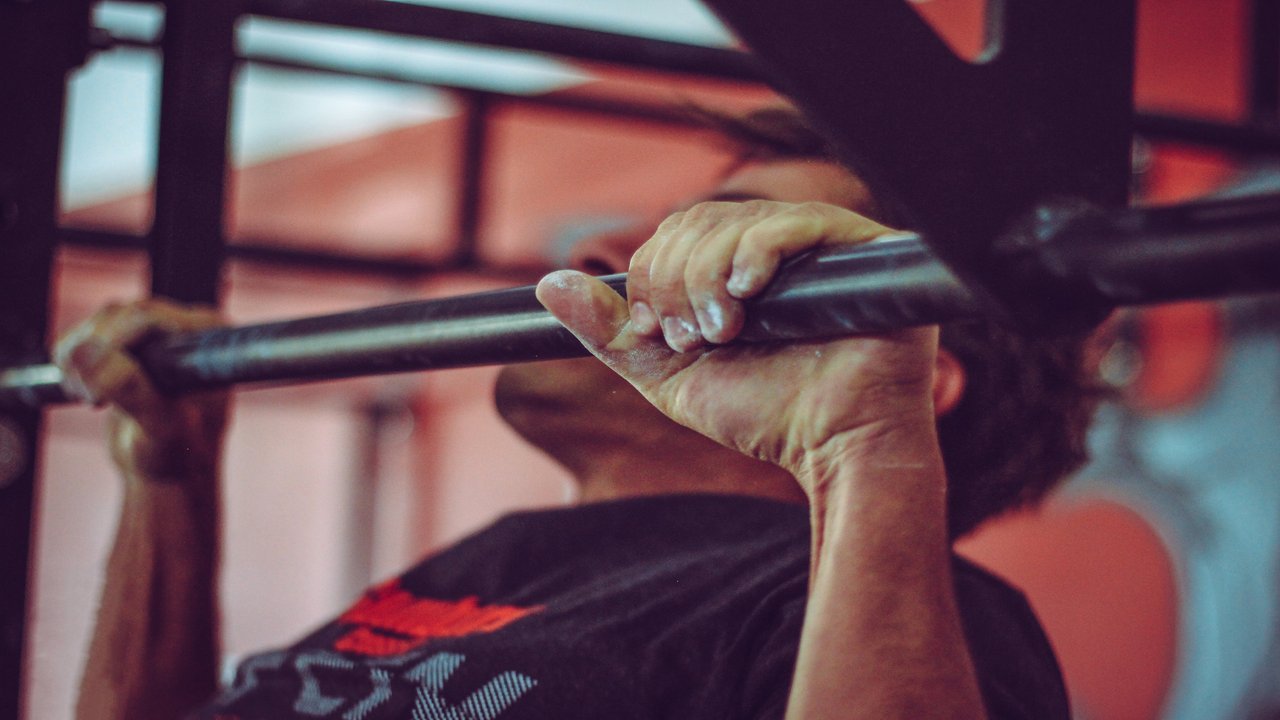
How to Maximize Post-Workout Recovery
Want to make the most of your post-workout recovery?
Learn how to maximize muscle repair, replenish glycogen, reduce inflammation, enhance immune function,
promote hydration, support digestive health, and provide essential nutrients.
By following effective recovery strategies, like consuming a protein-rich meal and staying hydrated,
you can optimize your body's ability to recover and perform at its best.
Let's dive into the essential techniques to help you bounce back stronger after each workout.
Key Takeaways
- Rest is crucial for muscle repair and growth after a workout.
- Consuming high-quality protein aids in muscle recovery and repair.
- Consuming carbohydrates within the first 30 minutes to 2 hours post-exercise enhances glycogen synthesis.
- Consuming anti-inflammatory foods and using cold therapy can reduce post-workout inflammation.
Importance of Post-Workout Recovery
To maximize your post-workout recovery, understanding the importance of proper recovery is crucial. Rest is essential for your muscles to repair and grow stronger after a workout. It's during rest that your body rebuilds muscle tissue and replenishes energy stores.
Proper nutrition plays a vital role in recovery as well. Consuming a combination of carbohydrates and protein within 30 minutes of finishing your workout can help replenish glycogen stores and kickstart muscle recovery.

Additionally, adequate sleep is crucial for your body to repair and regenerate. During deep sleep, the body releases growth hormone, which aids in muscle recovery and overall repair.
Stress management is also key. High stress levels can hinder your body's ability to recover effectively, so incorporating stress-reducing activities like meditation or yoga into your routine can be beneficial.
Muscle Repair Techniques
After prioritizing rest and proper nutrition for post-workout recovery, focus on employing specific muscle repair techniques to optimize your recovery process.
Protein synthesis is crucial for repairing and building muscle tissue. To enhance this process, ensure you consume an adequate amount of high-quality protein from sources like lean meats, eggs, dairy, and plant-based options such as legumes and quinoa.
Additionally, consider incorporating recovery supplements that contain essential amino acids, particularly leucine, which plays a key role in stimulating muscle protein synthesis.

Recovery supplements can aid in accelerating muscle repair by providing your body with the necessary nutrients to support tissue regeneration. Look for supplements that contain ingredients like branched-chain amino acids (BCAAs), creatine, and glutamine, as these have been shown to promote muscle recovery and reduce muscle soreness.
However, it's important to consult with a healthcare professional before adding any new supplements to your regimen to ensure they align with your individual health needs and goals.
Glycogen Replenishment Strategies
Once you have completed your workout, it's essential to focus on glycogen replenishment strategies in order to support muscle recovery and restore energy levels. Carbohydrate timing plays a crucial role in maximizing glycogen storage. Consuming carbohydrates within 30 minutes to 2 hours post-exercise enhances glycogen synthesis, especially when your muscles are most receptive to replenishment. Aim for a combination of high-glycemic and low-glycemic carbohydrates to ensure a steady release of energy.
High-glycemic options like fruits or sports drinks can be beneficial immediately after your workout, while incorporating low-glycemic choices such as whole grains, legumes, or vegetables in subsequent meals helps to sustain glycogen levels over a longer period.
Furthermore, consider the total amount of carbohydrates consumed. A general guideline is to aim for 1-1.2 grams of carbohydrates per kilogram of body weight within the first 30 minutes post-exercise, followed by additional carbohydrate-rich meals in the next few hours. This approach optimizes glycogen replenishment and supports muscle recovery, helping you to be better prepared for your next workout.

Reducing Inflammation After Exercise
Engage in anti-inflammatory strategies to support your body's recovery process after exercise. Consuming anti-inflammatory foods such as berries, fatty fish, and leafy greens can help reduce post-workout inflammation. These foods contain antioxidants and omega-3 fatty acids, which combat inflammation and promote faster recovery. Additionally, consider incorporating recovery supplements like turmeric or ginger, known for their potent anti-inflammatory properties.
Cold therapy is another effective way to reduce inflammation after exercise. Applying ice packs or taking cold showers can help constrict blood vessels and decrease tissue swelling, thereby alleviating post-workout inflammation. Similarly, incorporating massage techniques into your post-exercise routine can aid in reducing inflammation. Massages help improve blood circulation, which in turn promotes the removal of inflammatory byproducts and speeds up the recovery process.
Incorporating these anti-inflammatory strategies into your post-workout routine can significantly contribute to reducing inflammation, minimizing muscle soreness, and enhancing overall recovery. By supporting your body's natural healing process through these methods, you can optimize your post-exercise recovery and get back to your fitness routine feeling rejuvenated and ready to tackle your next workout.
Enhancing Immune Function
To enhance your immune function post-workout, prioritize consuming immune-boosting foods and staying adequately hydrated.
Incorporating foods rich in vitamins C and E, such as citrus fruits, bell peppers, almonds, and spinach, can help support your immune system. Additionally, consider including recovery supplements that contain immune-boosting ingredients like zinc, echinacea, and probiotics. These supplements can aid in enhancing your body's ability to ward off infections and illnesses during the post-exercise recovery phase.

Maintaining proper hydration is also crucial for immune function. Dehydration can weaken the immune system, making you more susceptible to infections. Therefore, it's essential to replenish fluids lost during exercise by drinking water and consuming hydrating foods like watermelon, cucumbers, and celery.
You should prioritize maintaining hydration and supporting digestive health as integral components of your post-workout recovery routine.
Hydration balance is crucial for replenishing fluids lost during exercise, aiding in the regulation of body temperature, and supporting the delivery of essential nutrients to your muscles. After a workout, focus on rehydrating by consuming water or electrolyte-rich beverages to restore your body's fluid balance.
Additionally, maintaining gut health is vital for optimal nutrient absorption and overall well-being. To support gut health maintenance, consider incorporating probiotics and prebiotics into your post-workout meals or snacks. These beneficial components can help promote a healthy balance of gut bacteria, which in turn aids in digestion and nutrient absorption.
Furthermore, consuming fiber-rich foods such as fruits, vegetables, and whole grains can also contribute to digestive health by supporting regular bowel movements and providing essential nutrients.

Frequently Asked Questions
What Are the Best Pre-Bedtime Snacks to Support Muscle Repair and Recovery?
Before bed, it's crucial to fuel your body with the right nutrients for muscle repair and recovery. Nutrient timing is key, and bedtime snacks can support this process.
Opt for protein sources like Greek yogurt, cottage cheese, or a protein shake to aid in muscle repair. These options are easy to digest, ensuring that the nutrients are readily available to support your body's recovery while you sleep.
How Does Stress Impact Post-Workout Recovery and What Can Be Done to Mitigate Its Effects?
When it comes to post-workout recovery, stress can be like a roadblock on your path to progress. Managing stress is crucial for optimal recovery.
Techniques like deep breathing, meditation, or yoga can help calm your mind and body. By nurturing the mind-body connection and reducing stress, you create an environment that supports muscle repair and replenishes energy stores.
Prioritize stress reduction to maximize the benefits of your hard work.

Are There Specific Foods or Supplements That Can Help Reduce Post-Workout Soreness and Inflammation?
For reducing post-workout soreness and inflammation, consider incorporating nutritional supplements and anti-inflammatory foods into your diet.
Nutritional supplements like fish oil, turmeric, and collagen can help with inflammation, while anti-inflammatory foods such as berries, leafy greens, and nuts can also aid in reducing muscle soreness.
Including these in your post-workout meals can contribute to a speedier recovery and less discomfort.
How Does Sleep Quality and Quantity Affect Post-Workout Muscle Recovery and Glycogen Replenishment?
Improving sleep quality and quantity directly impacts muscle recovery and glycogen replenishment. Sleep hygiene, like a consistent sleep schedule and a comfortable environment, supports your body's repair and regeneration processes.
Good sleep enhances performance and helps regulate circadian rhythms, which influences nutrient metabolism. Quality nutrition complements this, providing essential nutrients for muscle repair and glycogen synthesis.

Balancing sleep and nutrition optimizes post-workout recovery, promoting overall wellness and athletic performance.
What Are Some Lesser-Known Factors That Can Impact Post-Workout Immune Function and How Can They Be Addressed?
Feeling like a superhuman after crushing your workout? Well, nutritional strategies can be your secret weapon for boosting immune response and recovery.
Lesser-known factors like gut health play a crucial role in post-workout immune function. Incorporating probiotic-rich foods and fiber can support digestive health, ultimately enhancing your immune system.
Conclusion
Now that you have learned the essential components of post-workout recovery, it's time to put them into action.
By implementing these strategies, you can maximize muscle repair, replenish glycogen stores, reduce inflammation, boost immune function, promote hydration, and support digestive health.

So, go ahead and take your post-workout recovery to the next level and see the amazing results for yourself.
Your body will thank you for it.
Statistics
- Using heat therapy, such as heating pads or warm baths, can enhance blood flow and facilitate muscle recovery.
- Practicing mindfulness techniques can help reduce stress levels and improve post-workout recovery.
- Incorporating dynamic stretching before a workout can help activate muscles and improve post-workout recovery.
- Using foam rollers or other self-myofascial release tools can help alleviate muscle tension and enhance recovery.
- Applying ice packs or taking cold showers can help reduce muscle soreness and inflammation post-workout.
- Wearing compression clothing during or after a workout can help improve circulation and reduce muscle fatigue.
- Supplementing with branched-chain amino acids (BCAAs) can aid in muscle repair and reduce post-workout soreness.
- Rest days are just as important as workout days for maximizing post-workout recovery.
- Taking restorative baths with Epsom salts can help relax muscles and alleviate post-workout soreness.
- Including foods high in antioxidants, such as berries and leafy greens, can support the body's recovery process.
External Links
How To
How to Maximize Post-Workout Recovery
Maximizing post-workout recovery is important for muscle repair, reducing soreness, and achieving optimal performance. Here are some steps you can take to maximize your post-workout recovery:
1. Prioritize Rest and Sleep
Allowing your body enough time to rest and recover is crucial. Aim for 7-9 hours of quality sleep each night and schedule rest days throughout the week.
2. Hydrate Properly
Drink plenty of water before, during, and after your workouts to stay hydrated. Adequate hydration supports muscle function and recovery.
3. Fuel Your Body
Eat a balanced diet that includes lean proteins, healthy fats, and complex carbohydrates. Fueling your body with nutritious food post-workout can aid in muscle recovery and replenish energy stores.
4. Incorporate Active Recovery
Engage in light exercise or active recovery techniques such as stretching, yoga, or low-intensity cardio. These activities increase blood flow and promote faster recovery.
5. Use Cold or Heat Therapy
Utilize ice packs or take cold showers to reduce inflammation and ease muscle soreness. Alternatively, apply heat using heating pads or take warm baths to improve blood flow and promote relaxation.
6. Practice Self-Myofascial Release
Use foam rollers or massage tools to target tender areas and release tension in your muscles. Self-myofascial release can alleviate muscle soreness and enhance recovery.
7. Take Supplements
Consider incorporating supplements like protein powders, BCAAs (branch chain amino acids), or tart cherry juice into your post-workout routine. These supplements can support muscle repair and reduce inflammation.
8. Manage Stress Levels
Stress can hinder your body's ability to recover. Practice stress-management techniques such as deep breathing, meditation, or engaging in activities that bring you joy.
9. Get Professional Help
Consult with a fitness professional, such as a personal coach or physical therapist, to create a personalized recovery plan. They can provide guidance on techniques and exercises specific to your needs.
10. Listen to Your Body
Above all, listen to your body's cues. If you're feeling excessively fatigued or experiencing pain, take the necessary rest days or modify your workouts accordingly. Your body knows best.
 HealthWellnessFitnessBeautyVideosPrivacy PolicyTerms And Conditions
HealthWellnessFitnessBeautyVideosPrivacy PolicyTerms And Conditions
